Speak softly and carry a big stick; you will go far
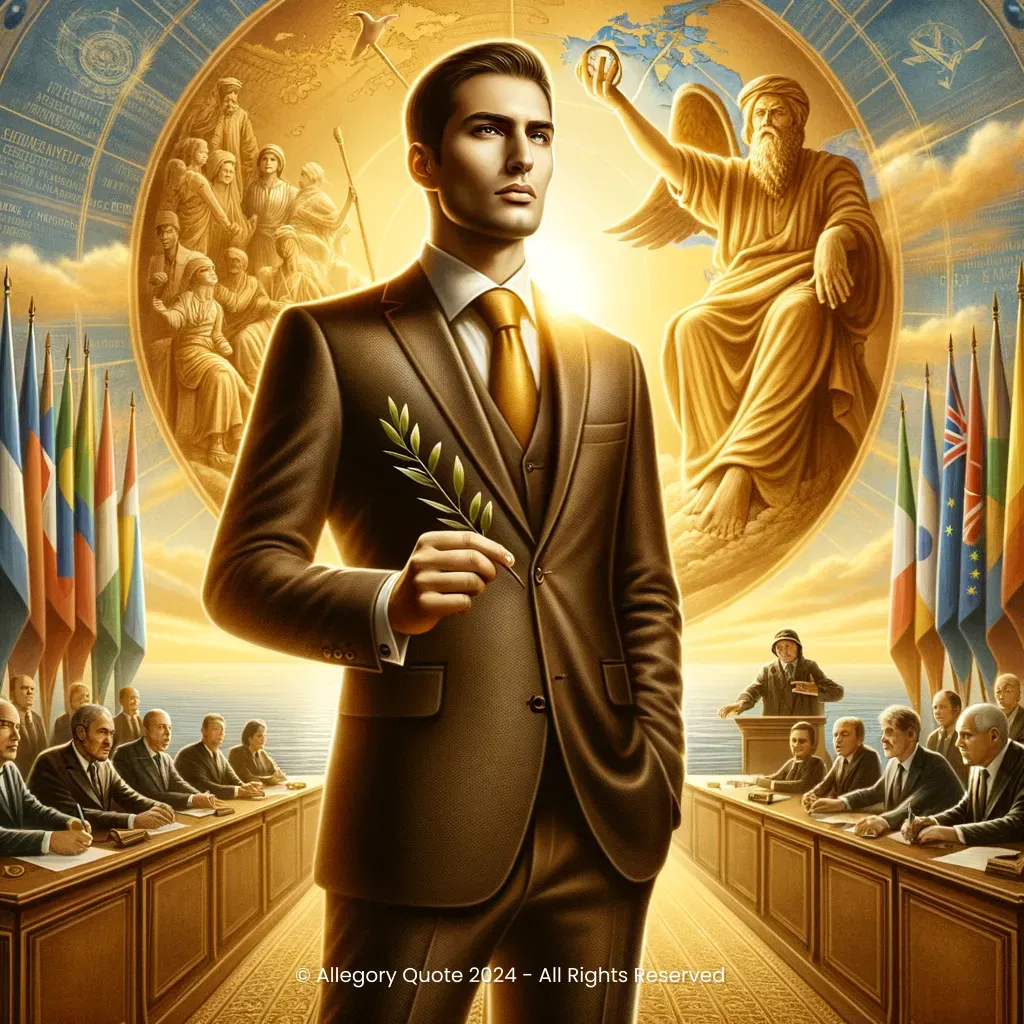
0
0
0
0
- Meaning
- The phrase "Speak softly and carry a big stick; you will go far" means that one should conduct negotiations and interactions in a gentle and non-aggressive manner but be prepared to use force if necessary. It underscores the importance of a calm, measured approach while having the strength or capability to back up one's stance if required. This philosophy is about balancing diplomacy and readiness for decisive action.
- Allegory
- The statesman at the center symbolizes Theodore Roosevelt or the embodiment of his philosophy. The olive branch in his hand signifies peace and diplomacy, while the sturdy staff represents strength and readiness to act if necessary. The presence of international representatives highlights the importance of discussing and negotiating rather than resorting to conflict outright. The golden sunrise is a symbol of optimism and the potential for forward movement and progress. The historical elements, like ships and trade routes, allude to historical contexts such as the Panama Canal and America's emergence as a global power, illustrating the balance between peaceful interaction and the readiness to exert influence or force if required. This visualization enhances the understanding of the phrase by integrating its core values in a harmonious and visually appealing manner.
- Applicability
- In personal life or daily human activities, this phrase teaches the importance of maintaining a peaceful and respectful demeanor while also being equipped to protect oneself or take action if needed. It can be applied in professional settings, where diplomacy and preparedness can help navigate conflicts or negotiations. It also emphasizes the value of being ready to assert oneself when necessary, without resorting to aggression from the outset.
- Impact
- This phrase has had a significant impact on political science and diplomatic strategies worldwide. It's often referenced in discussions about international relations and leadership styles. Roosevelt's application of this policy has been studied and admired for its effectiveness in balancing peace and power. The phrase is frequently cited in political speeches and discussions, symbolizing a strategy of peaceful strength.
- Historical Context
- The phrase dates back to the early 20th century, during Roosevelt's presidency (1901-1909). It reflects his foreign policy strategy, famously known as "Big Stick diplomacy," which was particularly relevant in the context of American imperialism and the construction of the Panama Canal. This period saw the United States asserting itself as a global power.
- Criticisms
- Some criticisms of this phrase and its associated policy argue that it may endorse an approach that relies too heavily on the threat of force, potentially leading to imperialism or militarism. Critics also suggest that it might encourage a form of paternalism or coercion in international relations, which can be detrimental in fostering genuine partnerships based on mutual respect and equality.
- Variations
- Variations of this phrase are not commonly found. However, similar philosophies appear in different cultures. For example, in Chinese culture, the concept of "Wu wei" (action through non-action) encourages a harmonious approach while being prepared to act decisively when necessary. Different cultures may emphasize the balance between gentleness and strength in their way, but the core message remains similar.
-

Politics, when I am in it, it makes me sick.
-
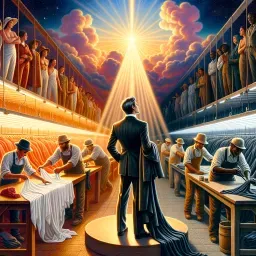
I pity the man who wants a coat so cheap that the man or woman who produces the cloth will starve in the process.
-

The only thing we have to fear is fear itself.
-

A public office is a public trust.
-

The world must be made safe for democracy.
-

I may be president of the United States, but my private life is nobody's damn business.
-
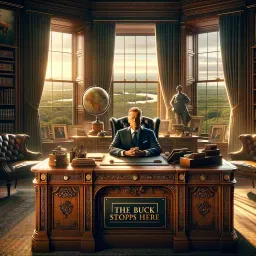
The buck stops here.
-
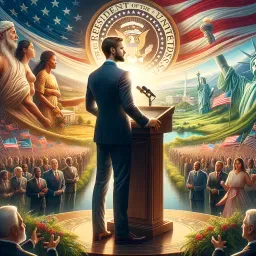
He serves his party best who serves the country best.
-
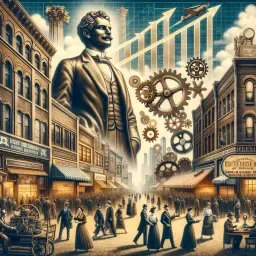
The business of America is business.
-

A pound of pluck is worth a ton of luck.
-

In any moment of decision, the best thing you can do is the right thing, the next best thing is the wrong thing, and the worst thing you can do is nothing.
-

What is right and what is practicable are two different things.
No Comments